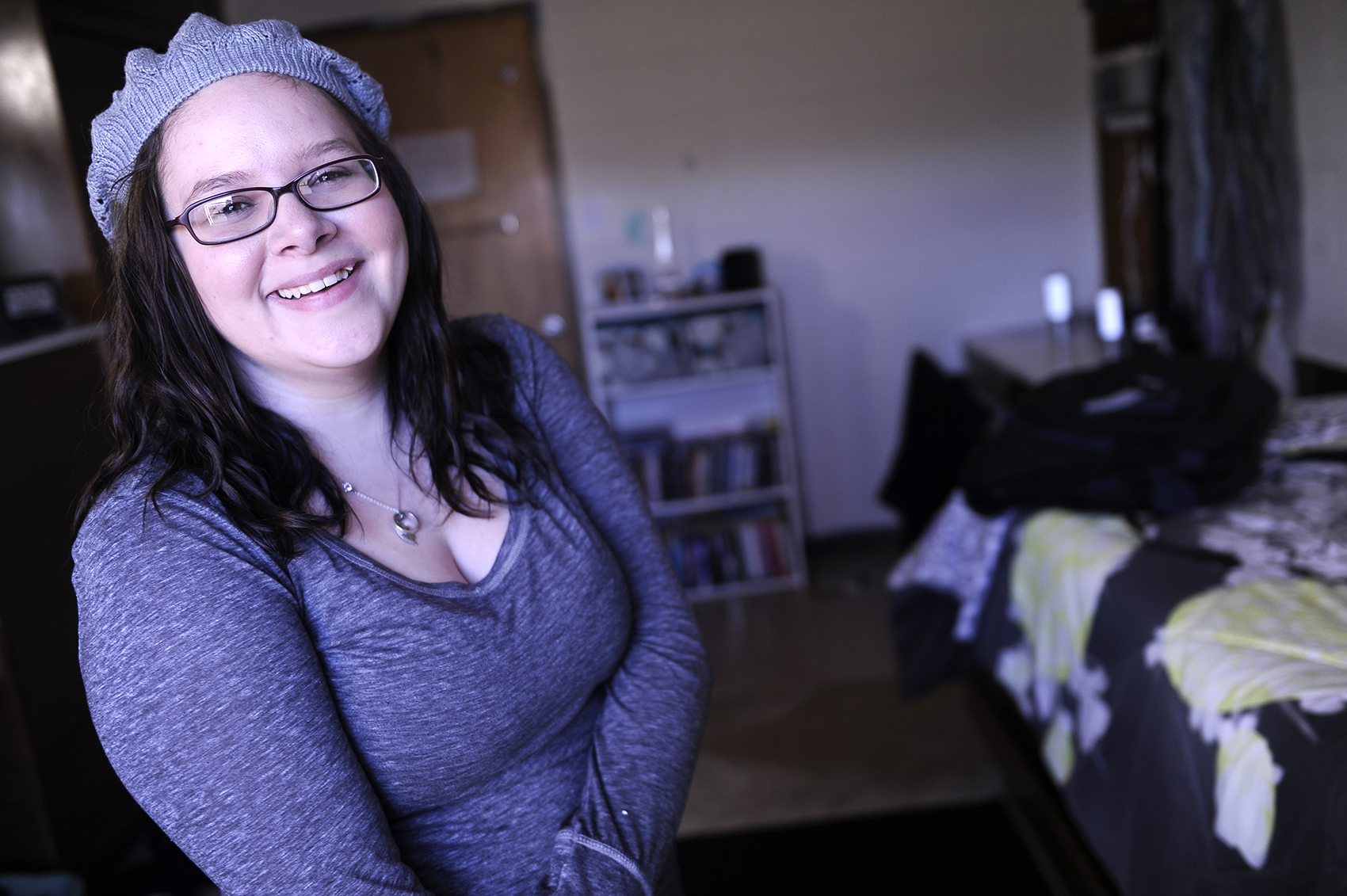 Becca Griffey, pictured in her dorm room, is a former foster care student who was able to enroll at Hiwassee College, in rural Madisonville, Tenn. She's taking part in an innovative partnership with the Department of Children's Services to enroll former foster children in a caring college environment that can meet their needs.
Becca Griffey, pictured in her dorm room, is a former foster care student who was able to enroll at Hiwassee College, in rural Madisonville, Tenn. She's taking part in an innovative partnership with the Department of Children's Services to enroll former foster children in a caring college environment that can meet their needs.MADISONVILLE, Tenn. - The latest trouble at Becca Griffey's home came to light the day before her 16th birthday.
Placed into state custody for her own safety, she spent the last two years of her childhood trying to complete high school while bouncing between a pair of foster homes in East Tennessee and a group home for girls all the way across the state in Memphis.
"I didn't have anybody to hold me accountable," she said. "In school I just slid by. I did the minimum work."
The same attitude wouldn't be good enough in college. Griffey knew enough about herself to accept that she might need some extra guidance to make it through.
It just so happened that a small college in the shadows of the Great Smoky Mountains, close to where she grew up, was looking to recruit students just like her - teens who had "aged out" of foster care at age 18 and who might benefit from a tight-knit campus community that offers extra help for young people from broken homes.
Griffey this fall became one of the first students in the Hiwassee College HOPE Scholars program, part of a promising new push across Tennessee to do more for teens who age out of state custody.
She gets one-on-one mentoring from college staff, scholarship money from a federal program and ongoing assistance from the state Department of Children's Services - all of that as long as she stays on track in school.
"Now that I'm in college, I have to keep up with it," Griffey said. "Especially with the state holding me accountable."
A lot has changed in the past two years for former foster youth in Tennessee. Funding has increased for "extended" foster care services, allowing the state to better help teenagers move into post-secondary schooling, housing and work.
The state Legislature's adoption of the federal Fostering Connections program also can pay foster families to keep teens in their homes until age 21.
And in October, Gov. Bill Haslam and nonprofit Youth Villages announced a joint investment that they said could provide help to every foster youth who ages out, making Tennessee the first state to put up such funding.
It's a group of young adults who face particular difficulties, said Stephanie Bosson, DCS independent living program coordinator for East Tennessee. Like others who help foster youth move toward independence, Bosson notes that any 18-year-old - from foster care or not - could struggle with the responsibilities of adulthood.
But those from foster care often don't have parents to pick them up when they stumble. National studies of foster teens have found that 45 percent drop out of high school and half can't find jobs. A quarter end up homeless, and more than that spend time in jail.
Bosson sees how relatively small life challenges add up. Many foster youth miss classes and fall behind in high school. Few take on even part-time jobs. A lack of transportation can limit their choices.
With the push on for foster youth to continue their educations, DCS leaders have searched for ways that colleges could be more accommodating.
Allowing foster youth to register early for classes can help them get the courses they need when they need them, helping those who rely on public transit or rides from friends meet the demands of their schedule. Keeping dorms open during holidays and school breaks also can help.
"Where are you going to spend Thanksgiving," Bosson said, "if you don't have family nearby?"
Just having a trusted adult on campus can help, as Griffey knows all too well.
Her father died when she was an infant. An abusive stepfather was barred by restraining order from the family home, but he didn't stay away, prompting the state to remove Griffey in 2009. Her mother signed away her parental rights after that.
Griffey said she didn't always make things easy for her foster families, sometimes harming herself and refusing to take medications. She knows some families tried to help her, but many of her relationships with adults were filled with friction.
"It was difficult because I always felt like nobody wanted me," she said.
That hasn't been the case at Hiwassee.
It was by chance that Hiwassee leaders took interest in the foster care system.
Two of the college's board members had, independently, adopted children out of foster care. Discussion about those adoptions led college leaders to realize that two former foster teens were already on campus and doing well, college President Robin Tricoli said.
"We had discovered that not many schools were actively recruiting them," she said. "I thought, wow, we've got such good success stories with our students."

